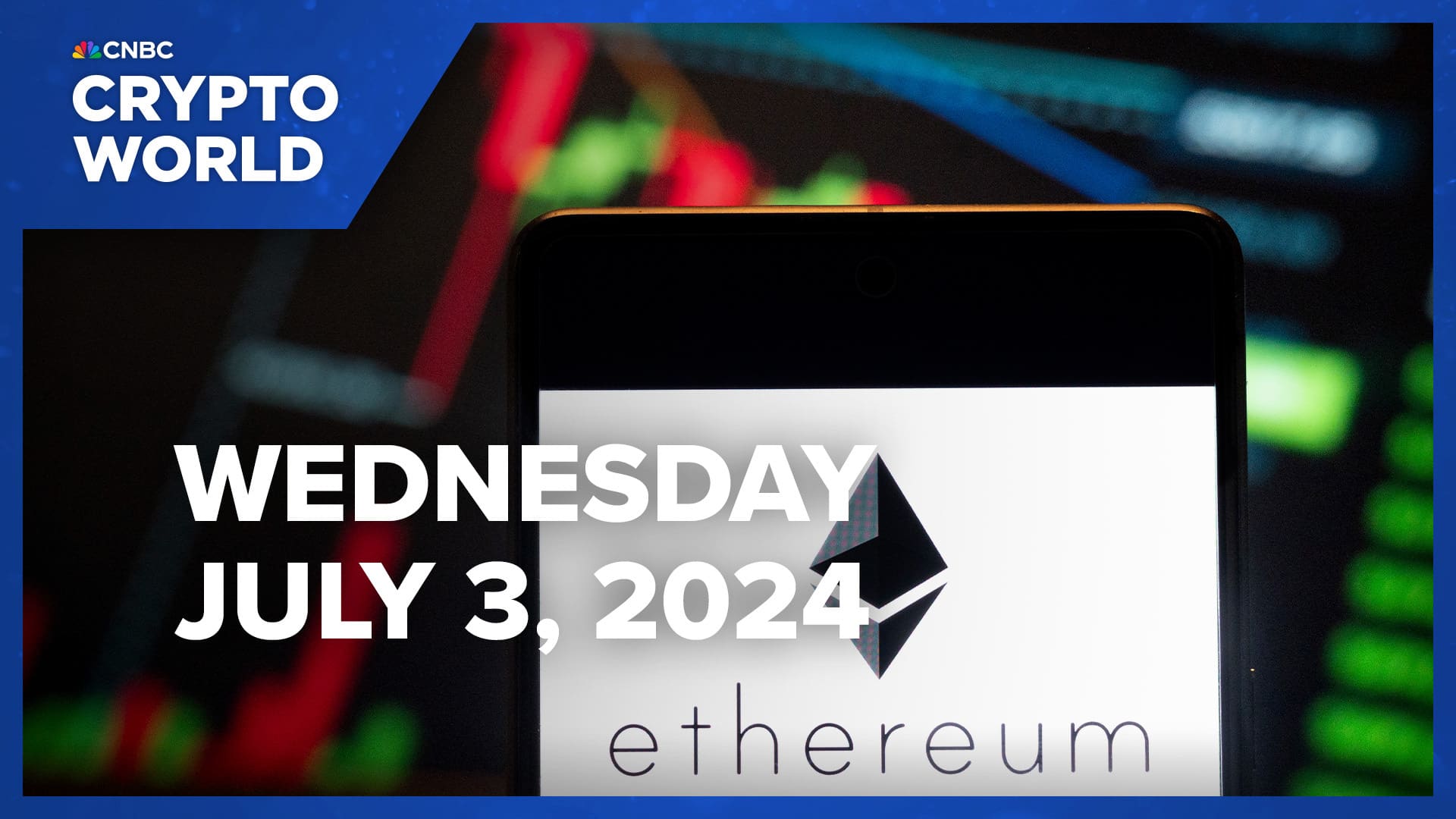News
I Saw Hackers Drain $45,000 From My Wallets: What Did I Do Wrong and Which Cryptocurrencies Need Fixing – DL News

- The malware infected my computer and left my wallets exposed.
- The stolen funds remain intact in the hacker’s wallet.
- I have some ideas on how crypto platforms can better protect investors.
As of noon on May 13, there were $45,000 worth of tokens in my MetaMask crypto wallets.
An hour later, it was all gone.
Sitting at my desk in my home in Lagos, Nigeria, I stared blankly at my computer screen, struggling to register the impact of what had happened.
On multiple open browser tabs on my computer, I could see several crypto transactions going out of my wallet to unknown addresses.
I was confused.
I looked at the timestamps displayed on many transactions and knew I couldn’t initiate them.
This was because I was busy working on another computer for three hours.
My shock quickly gave way to dismay when I realized that I had somehow been hacked. But how?
Join the community to get our latest stories and updates
Pain and guilt
I have been a cryptocurrency reporter for seven years and in this time I have covered many cases of token owners who lost their funds to hackers.
Now, the same thing had just happened to me.
I felt pangs of pain and guilt remembering that most of the funds belonged not to me but to my family.
They began accumulating these crypto tokens — Ether, Tether’s USDT stablecoin, and Jasmy, an altcoin — in 2020, after Covid-19 lockdowns sparked economic volatility.
As the family’s resident expert, it was up to me to take care of their possessions, to keep them safe. I was their cryptocurrency custodian and my record was spotless.
Until now.
As painful as the theft was, it was nothing compared to the anguish I felt as I informed my family of what had happened.
The pain I saw etched on their faces reminded me of my late father’s passing in 2017. My story casts the transparency of public blockchains in a different light.
In just a few swipes at the computer, I can see my stolen cryptocurrency in someone else’s wallet, yet I can’t recover my assets. It’s a macabre reminder of my ordeal.
The reality is that a similar fate has befallen many cryptocurrency users, from professionals to beginners.
‘It’s easy to lose your cryptocurrencies if you make a mistake. In my case it all started with a game.’
Billionaire Mark Cuban last year it lost $870,000 to a hacker after saying he downloaded a MetaMask wallet “with some shit in it.”
In 2023, cryptocurrency investors lost $1.7 billion to thievesaccording to Chainalysis, the blockchain forensics company.
It’s easy you lose your cryptocurrency if you make a mistake like downloading contaminated software that exposes your wallet details.
Sometimes, you can lose your funds if careful hacker poison your wallet address creating a fake wallet that closely matches that of the victim.
In my case it all started with a game.
Keylogger
I had promised to help a younger relative of mine download a game called “Dave The Driver”.
He became impatient and tried to do it himself. The problem was that he used the computer with the browser wallet that contained my family’s crypto assets.
He downloaded a version of the game containing malware and immediately infected my laptop.
The malware likely installed a keylogger, a program that records keystrokes, and exposed the details of my MetaMask wallet, allowing the hacker to steal the encryption.
Many online wallets, including MetaMask, do not use proven security measures to prevent theft, such as fraud alerts and two-factor authentication.
If this was an account at my bank, I would have received a fraud alert as soon as the first transaction was initiated.
The bank would suspend the transaction and give me enough time to confirm whether I had indeed initiated the funds transfer.
Virtually no such preventative features exist for crypto wallets.
Funds staked safely
In fact, the only warning I received from a centralized exchange where I held some tokens. Apparently the hacker was trying to access my assets and the exchange asked him for a two-factor authentication code.
That attempt was unsuccessful and I managed to retain those assets, but it was a small sum. However, here was a situation where two-factor authentication, or 2FA, worked well.
The hacker also tried to steal funds from other wallets I used that had staked cryptocurrencies, but they were unsuccessful.
“Unless the hacker forgets, I would race the thief to secure the assets invested in a new wallet.”
This is because blockchains like Cosmos typically require users to wait 14 to 21 days to withdraw staked assets after they have been unlocked.
The hacker started the unstaking process, but was unable to transfer the tokens to his wallet. I have since rearranged those crypto tokens, but that hardly solves the problem.
(Staking is a process that allows your tokens to be used to validate transactions on a blockchain network.)
Unless the hacker forgets about my assets, I’ll be in a race with the thief to secure those staked assets in a new wallet when they become available for pickup, but that’s a problem for another day.
As for the immediate aftermath, I am grateful that my family did not blame me or my young relative for exposing their assets.
Reflecting on the stories I had written about similar cases, I realized that I hadn’t thought much about the families of people who had lost crypto funds to hackers.
My goal was to explain how the hacks occurred, where the funds went, and possible recovery efforts.
I can see the resources
What was especially frustrating was the fact that I can still see my stolen property three weeks after the crime.
Most of the stolen cryptocurrencies are found in the two addresses belonging to the hacker. They can be seen Here AND Here.
In any case, I contacted a blockchain security company to try to stop the hacker from exchanging the stolen cryptocurrency for cash via a centralized exchange.
They told me it would cost them $2,000 to try to block the hacker’s wallet addresses.
Recovery of stolen cryptocurrencies is usually a lengthy process involving law enforcement action and the cooperation of cryptocurrency exchanges.
My family members decided it was best to absorb the loss.
They were not thrilled at the prospect of spending more money chasing the hacker when there was little or no chance of recovery.
Better safeguards are needed
I have had time to reflect on what happened and there are lessons to be learned from my experience.
First and foremost, keep computers containing valuable crypto wallets away from children!
On a more serious note, crypto wallets need better collateral.
If the goal is large-scale adoption of cryptocurrencies, then secure storage of these digital assets must become easier, especially for those who prefer self-custody.
Self-custody comes with the expectation that you are responsible for keeping your possessions safe.
But users need more help, perhaps in the form of real-time alerts and two-factor authentication.
There are smart contract solutions like Safe’s multi-signature wallet where more than one signer is needed to complete a transaction.
While multi-sig wallets help improve security, individual signers must protect their own keys – again, with self-custody, it is up to the user to ensure the security of the wallet.
Multi-signature to the rescue?
Assuming you had set up a multi-sig deal with the compromised wallets, the hacker would still have been able to steal the funds. They would use each compromised address to sign the transactions needed to move the funds.
The process would have been slower, but they would have gotten away with my family’s money.
However, it is bad practice to set up a multi-sig controlled by a single entity.
Ideally, each signer would be a different family member whose wallets were on separate devices.
And that’s what we did.
Some may point out the mistake of keeping funds in an online wallet prone to hacker attacks. Or suppose the tokens would have to be securely placed in an offline wallet, like the type offered by hardware wallet makers.
That was the plan, even if I had been slow to move.
And now they’ve given me a $45,000 lesson for my lethargy.
Osato Avan-Nomayo is our DeFi correspondent based in Nigeria. He covers DeFi and technology. To share story tips or information, contact him at osato@dlnews.com.
News
How Ether Spot ETF Approval Could Impact Crypto Prices: CNBC Crypto World

ShareShare article via FacebookShare article via TwitterShare article via LinkedInShare article via email
CNBC Crypto World features the latest news and daily trading updates from the digital currency markets and gives viewers a glimpse of what’s to come with high-profile interviews, explainers and unique stories from the ever-changing cryptocurrency industry. On today’s show, Ledn Chief Investment Officer John Glover weighs in on what’s driving cryptocurrency prices right now and how the potential approval of spot ether ETFs could impact markets.
News
Miners’ ‘Capitulation’ Signals Bitcoin Price May Have Bottomed Out: CryptoQuant

According to CryptoQuant, blockchain data shows signs that the Bitcoin mining industry is “capitulating,” a likely precursor to Bitcoin hitting a local price bottom before reaching new highs.
CryptoQuant analyzed metrics for miners, who are responsible for securing the Bitcoin network in exchange for newly minted BTC. As outlined in the market intelligence platform’s Wednesday report, multiple signs of capitulation have emerged over the past month, during which Bitcoin’s price has fallen 13% from $68,791 to $59,603.
One such sign includes a significant drop in Bitcoin’s hash rate, the total computing power that backs Bitcoin. After hitting a record high of 623 exashashes per second (EH/s) on April 27, the hash rate has fallen 7.7% to 576 EH/s, its lowest level in four months.
“Historically, extreme hash rate drawdowns have been associated with price bottoms,” CryptoQuant wrote. In particular, the 7.7% drawdown is reminiscent of an equivalent hash rate drawdown in December 2022, when Bitcoin’s price bottomed at $16,000 before rallying over 300% over the next 15 months.
This latest hash rate drop follows Bitcoin’s fourth cyclical “halving” event in April, which cut the number of coins paid out to miners in half. According to CryptoQuant’s Miner Profit/Loss Sustainability Indicator, this has left miners “mostly extremely underpaid” since April 20, forcing many to shut down mining machines that have now become unprofitable.
CrypotoQuant said that miners faced a 63% drop in daily revenue after the halving, when both Bitcoin block rewards and transaction fee revenues were much higher.
During this time, Bitcoin miners were seen moving coins from their on-chain wallets at a faster rate than usual, indicating that they may be selling their BTC reserves“Daily miner outflows reached their highest volume since May 21,” the company wrote.
Among the sales of Bitcoin miners, whales and national governmentsBitcoin’s price drop in June also hurt Bitcoin’s “hash price,” a metric of Bitcoin Miner Profitability per unit of computing power.
“Average mining revenue per hash (hash price) continues to hover near all-time lows,” CryptoQuant wrote. “Hashprice stands at $0.049 per EH/s, just above the all-time low hashprice of $0.045 reached on May 1st.”
By Ryan-Ozawa.
News
US Congressman French Hill Doubles Down on Trump’s Pro-Crypto Stance

US lawmaker French Hill has noted that Donald Trump will take a more pro-crypto approach than the current administration. The run-up to the presidential election has seen cryptocurrencies become an issue with lawmakers making huge statements ahead of the polls. Donald Trump has also been reaching out to the industry, making a pro-crypto case.
French Hill Backs Trump’s Pro-Crypto Stance
Republican Congressman French Hill has explained the type of cryptocurrency regulatory framework he believes Donald Trump could adopt in the country. In a recent interview with CNBC, French Hill said that the recently passed FIT21 bill is the type of regulatory framework the Trump administration will adopt in the sector.
#FIT21 passed the House with 71 Democratic votes, it’s exactly the kind of digital asset regulatory framework former President Trump would support if re-elected.
See more on @SquawkCNBC🔽 photo.twitter.com/ceTmU4LApU
— French Hill (@RepFrenchHill) July 3, 2024
THE FIT21 Bill It is intended to protect investors and consumers in the market by establishing clear rules and powers for the various regulators in the sector. According to Hill, Trump will adopt it because it directs the Securities and Exchange Commission (SEC) and the Commodity Futures Trading Commission (CFTC) on the specific regulatory framework needed in the market.
“… for people who are innovating and starting a crypto token, a related business, custody of those assets, how to ensure consumer protection, so I think that framework is the right approach and that’s what I’m going to recommend to the President to pass, which is that we have not passed it between now and the end of this Congress.”
He also called Trump an innovative and pro-growth president in financial matters.
Cryptocurrency is going mainstream
This election cycle saw the cryptocurrency industry taking a place in mainstream issues following broader adoption across demographics. From candidates moving toward enthusiasts to recent pro-Congress legislation, cryptocurrencies have become a rallying point for officials. The U.S. regulatory landscape has been criticized for stifling growth due to frequent SEC LawsuitsThis has led executives to push for pro-cryptocurrency laws and raise money for pro-industry candidates.
Read also: Federal Reserve Predicts “AI Will Be Deflationary” to Stimulate Economy
David is a financial news contributor with 4 years of experience in Blockchain and cryptocurrency. He is interested in learning about emerging technologies and has an eye for breaking news. Keeping up to date with trends, David has written in several niches including regulation, partnerships, cryptocurrency, stocks, NFTs, etc. Away from the financial markets, David enjoys cycling and horseback riding.
News
US Court Orders Sam Ikkurty to Pay $84 Million for Cryptocurrency Ponzi Scheme

A federal court has ordered Jafia LLC and its owner, Sam Ikkurty, to pay nearly $84 million to cryptocurrency investors after ruling that the company was operating a Ponzi scheme.
The ruling, issued by Judge Mary Rowland in the U.S. District Court for the Northern District of Illinois, follows a lawsuit filed by the Commodity Futures Trading Commission (CFTC) in 2022 after the fund collapsed.
Judge Rowland found that Ikkurty, based in Portland, Oregon, did numerous false claims on his company’s hedge funds.
These included misleading statements about his trading experience and the promise of high and stable profits. Instead, Ikkurty used funds from new investors to pay off previous investors, a hallmark of a Ponzi scheme.
The Ponzi Scheme
The court found that Ikkurty misappropriated investment funds for personal use without the knowledge of the investors. These funds were used for personal use and were reported as Fraudulent Investmentscausing significant financial losses to customers.
This non-transparent operation violated Transparency Commission regulations, which led to the imposition of a hefty fine to compensate defrauded investors and restore some public confidence in the financial system.
Judge Rowland emphasized that fraudulent activity such as this violates the law and undermines the integrity of modern financial markets. The $84 million award seeks to address the financial harm inflicted on investors and reinforce the importance of legal compliance in cryptocurrency trading.
-

 Videos9 months ago
Videos9 months agoBitcoin Price AFTER Halving REVEALED! What’s next?
-

 Bitcoin8 months ago
Bitcoin8 months agoBitcoin Could Test Record Highs Next Week in ETF Flows, Says Analyst; Coinbase appears in the update
-

 Videos9 months ago
Videos9 months agoAre cryptocurrencies in trouble? Bitcoin Insider Reveals “What’s Next?”
-

 Videos9 months ago
Videos9 months agoCryptocurrency Crash Caused by THIS…
-

 Videos8 months ago
Videos8 months agoThe REAL reason why cryptocurrency is going up!
-

 Altcoin8 months ago
Altcoin8 months agoThe best Altcoins to buy before they rise
-

 Videos9 months ago
Videos9 months agoBlackRock Will Send Bitcoin to $116,000 in the Next 51 Days (XRP News)
-

 Videos9 months ago
Videos9 months agoDonald Trump: I like Bitcoin now! Joe Biden HATES cryptocurrencies.
-

 Videos8 months ago
Videos8 months agoSolana Cryptocurrencies: the future WILL SHOCK you | What comes next?
-

 News9 months ago
News9 months agoTON, AKT, AR expect increases of 15%+ as the market stabilizes
-

 Videos8 months ago
Videos8 months agoBitcoin Whale REVEALS: The 5 Best Coins to Make You a Millionaire!
-

 Videos8 months ago
Videos8 months agoBREAKING NEWS: The 19 best cryptocurrencies ready to skyrocket!















